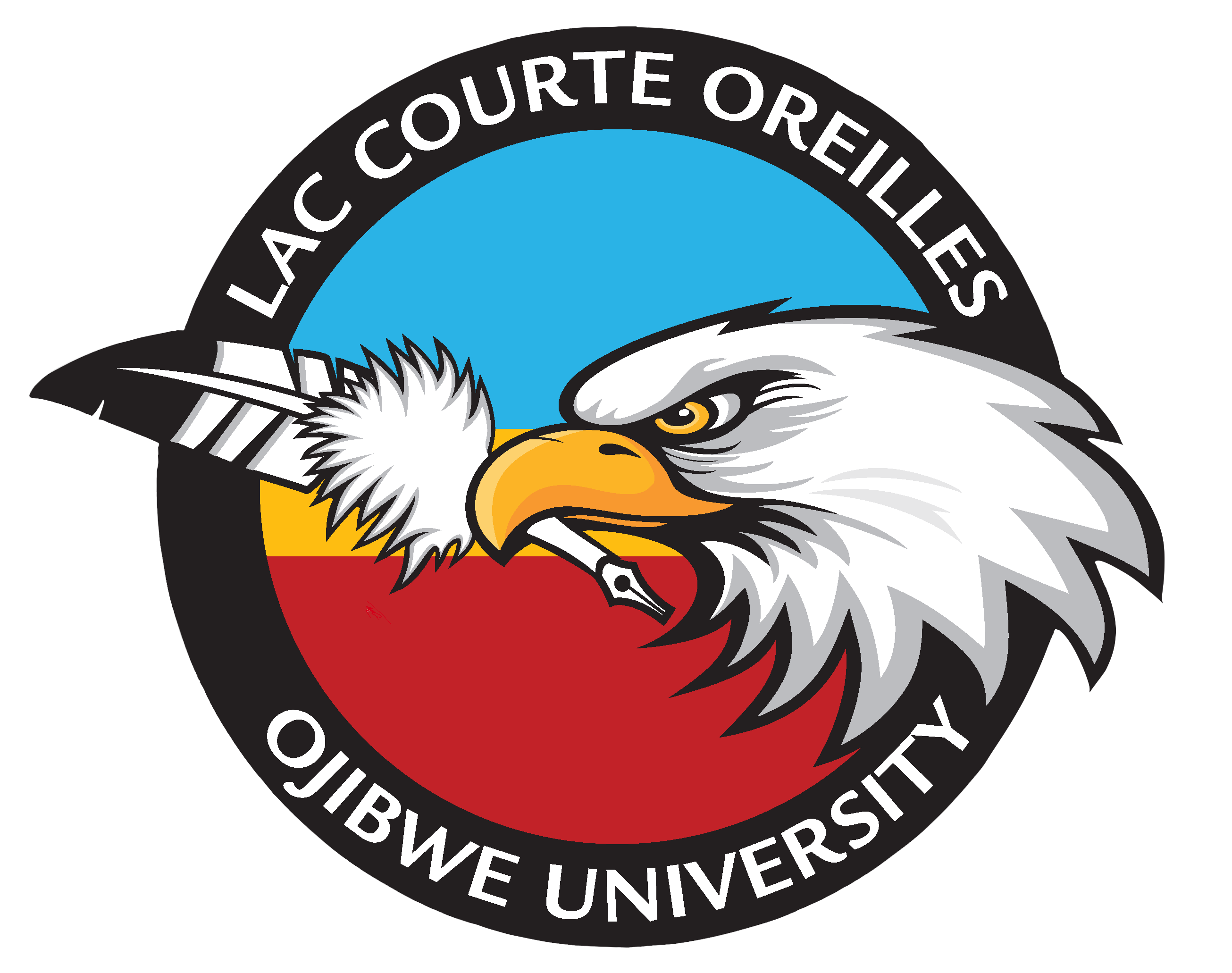
- Details
- By Darren Thompson
HAYWARD, Wisc.— After 40 years, a northern Wisconsin tribal community college has a new name, expanded mission and two newly accredited master’s degree programs offered by the school.
The former Lac Courte Oreilles Ojibwe College, a public land grant community college, made the transition recently to become Lac Courte Oreilles Ojibwe University. The announcement comes on the heels of recent accreditation by the Higher Learning Commission for the university’s new Masters in Business Administration and Masters in Human Services degrees.
“This is a big deal, not just for us, but for all of Indian Country,” LCO Ojibwe University President Russell Swagger, Ph.D., told Native News Online. “When we talk about why tribal higher education is important…more times than none people express how important it is to recover the language, culture, and history. Language, history, and culture are exactly what we are about — we’re making it a reality.”
The college was established in 1982 as Lac Courte Oreilles Ojibwe Community College. In 2020, it was accredited to provide bachelor’s programs in business and human service.
According to the LCO Ojibwe University, enrollment of Native students during the 2020-2021 year was 78 percent.
Since its beginnings, LCO Ojibwe University has been committed to providing Anishinaabe (the Ojibwe word for person or people) communities with post-secondary and continuing education while advancing the Ojibwe’s language, culture, and history.
The name Courte Oreilles was given to the Ojibwe people in the area, where the French mistakenly believed the group of Ojibwe cut off the edges of their ear lobes and referred to them as Courte Oreilles, or “cut/short ears.” The eastern part of Lac Courte Oreilles, a large lake in the area, is on the reservation.
The university is also an authorizer of Ojibwe charter schools. Waadookodaading, an Ojibwe immersion school located on the reservation, began within the facilities of the tribal college.
Recently, LCO Ojibwe University approved a charter for Akii Earth School, an independent charter school operated by the Waadookodaading Ojibwe Language Institute. Unlike the immersion school, the Akii Earth school is more project-based, where students learn to harvest and process wild rice, hunt and gather materials.
“The new school picks up where immersion leaves [off], and immerses them in cultural activities,” LCO Ojibwe University’s Swagger said of Akii Earth School. “The missing piece is the college, and it’s our goal to develop the Ojibwe language as a program.”
Initially, the tribal college had one location on the Lac Courte Oreilles Ojibwe Indian Reservation, but has since expanded to four other Ojibwe communities: Lac du Flambeau, Bad River, Red Cliff, and St. Croix.
According to its most recent annual report, the school has applied for an additional bachelor’s degree in teacher education.
“It’s exciting,” Stephanie St. Germaine, LCO Ojibwe University’s Dean of Records and Registrar, said of the transition to Native News Online. “It’s an organization I’m proud to be a part of. The growth of the university shows promise to bring this community a service for years to come.”
According to the American Indian Higher Education Consortium, there are 37 tribal colleges in the United States with more than 75 separate sites. Nine of them are in Ojibwe communities, including Bay Mills Community College, Keweenaw Bay Ojibwa Community College, Saginaw Chippewa Tribal College, Fond du Lac Tribal and Community College, Leech Lake Tribal College, White Earth Tribal and Community College, Red Lake Nation College, Turtle Mountain Community College, and the Lac Courte Oreilles Ojibwe University, with satellite offices in 4 other communities.
The university announced a celebration on October 12 to recognize the name change, reflect on its 40-year history, and invite the community to guide the university’s future.
More Stories Like This
10 Years of Building Business Dreams for Indigenous WomenIchigo Foundation Awards American Indian College Fund Adult Education Program
Bard College Center for Indigenous Studies (CfIS) Hosts Annual Symposium With Keynote Speaker Miranda Belarde-Lewis on March 9–10
American Indian College Fund Announces Spring 2026 Faculty Fellow Cohort
Navajo Nation Signs $19 Million Diné Higher Education Grant Fund Act into Law
Help us defend tribal sovereignty.
At Native News Online, our mission is rooted in telling the stories that strengthen sovereignty and uplift Indigenous voices — not just at year’s end, but every single day.
Because of your generosity last year, we were able to keep our reporters on the ground in tribal communities, at national gatherings and in the halls of Congress — covering the issues that matter most to Indian Country: sovereignty, culture, education, health and economic opportunity.
That support sustained us through a tough year in 2025. Now, as we look to the year ahead, we need your help right now to ensure warrior journalism remains strong — reporting that defends tribal sovereignty, amplifies Native truth, and holds power accountable.
 The stakes couldn't be higher. Your support keeps Native voices heard, Native stories told and Native sovereignty defended.
The stakes couldn't be higher. Your support keeps Native voices heard, Native stories told and Native sovereignty defended.
Stand with Warrior Journalism today.
Levi Rickert (Potawatomi), Editor & Publisher

